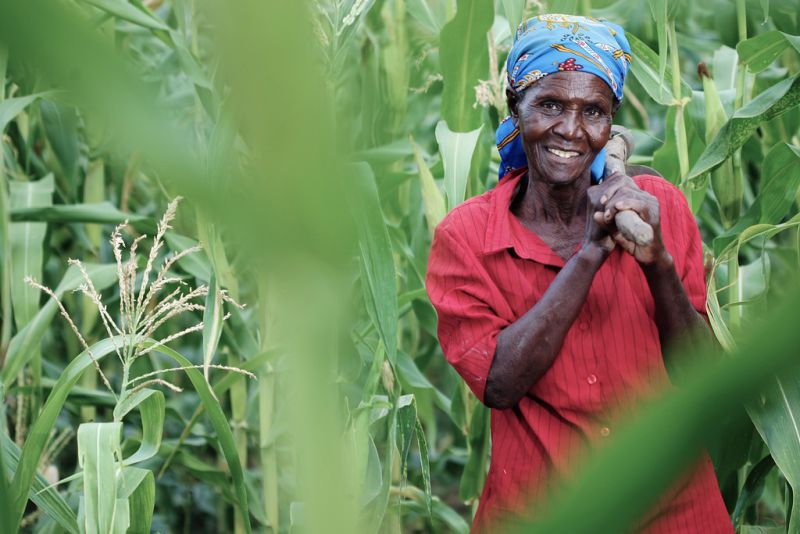By: Sumita Thapar
Send to a friend
The details you provide on this page will not be used to send unsolicited email, and will not be sold to a 3rd party. See privacy policy.
Female farmers suffer from a double disadvantage of a lack of access to funds and labour, which leads to their farms being much less productive than those headed by men.
A study in the journal Development Studies last month found that limited access to credit means female farm owners in Malawi must find work off their farm to raise capital for farm improvements such as equipment and fertiliser. But because of gender discrimination in the labour market, they are often unable to find work that pays well enough to afford this.
“Women farmers are denied equal access to credit because the land is not in their name.”
Kavitha Kuruganti, Indian Forum for Women Farmers’ Rights
As a result, labour productivity on farms run by women is on average 44 per cent lower than on male-run farms, putting them at a significant economic disadvantage, the study says.
Amparo Palacios-López, a development researcher at the World Bank, and Ramón López, an economist at the University of Chile, produced the study for the World Bank. They say it is crucial to address the sociocultural barriers that keep women from improving their farms, as lower household income harms the health, education and nutrition of their families.
The study says women are often restricted to small-scale farming in Sub-Saharan Africa as they find it harder than men to get paid work if they divorce, are widowed or never marry. It finds that, because of the market disadvantages these women face, their plots are smaller and use of inorganic fertiliser is lower.
“Correcting credit and labour market failures is likely to have a bigger impact on female-headed households than on male-headed households,” the authors conclude.
These issues are problems for female farmers across the world, says Kavitha Kuruganti, a member of the Indian Forum for Women Farmers’ Rights.
Kuruganti says that in India, the state and society often fail to recognise women as farmers because the land they use is in their husband’s name.
“Women farmers are denied equal access to credit because the land is not in their name,” she says. “When banks don’t lend money, women farmers end up taking debts and getting embroiled in exploitative practices.”
Kuruganti says this is particularly true in areas where many men have left to work in cities. Women who cannot hire additional labour are forced to till smaller plots of land, perpetuating the cycle of disadvantage, she explains.
References
Amparo Palacios-López & Ramón López The gender gap in agricultural productivity: the role of market imperfections (Development Studies, 19 August 2015)














